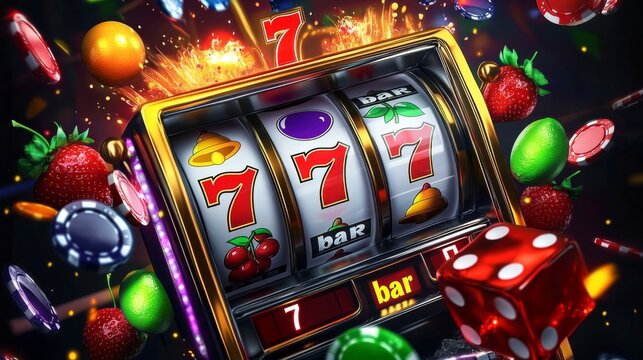Online gaming has experienced significant growth over the past two decades, and with the advent of new technologies, slot online terpercaya game developers continue to innovate, creating more immersive and rewarding experiences. One of the most exciting trends to emerge recently is the concept of “Play-to-Earn” (P2E) games, a new paradigm that merges gaming with blockchain technology and cryptocurrency.
What is Play-to-Earn?
At its core, Play-to-Earn refers to games that allow players to earn real-world value through in-game actions. This is made possible by integrating blockchain technology and cryptocurrencies, enabling players to collect, trade, or sell in-game assets that have tangible value outside the game itself. These assets can range from non-fungible tokens (NFTs) to cryptocurrencies and other digital goods. The idea is simple: players are rewarded for their time and effort spent in the game, not just through traditional achievements like leveling up or unlocking new items, but through assets that can be exchanged for real money.
The Blockchain and Cryptocurrency Backbone
Blockchain technology, the same innovation behind cryptocurrencies like Bitcoin and Ethereum, is what makes Play-to-Earn games so unique. It allows for a decentralized and transparent way of tracking ownership of in-game items. For example, a rare item or character skin in a game might be represented as an NFT, and the blockchain ensures that the ownership of that asset is securely recorded and verified.
Cryptocurrencies also play a crucial role. Many Play-to-Earn games have their own in-game tokens, which can be used to buy items, pay for services, or exchange for other cryptocurrencies. This creates a system where players can earn a currency that can be traded or sold for real money on cryptocurrency exchanges.
Popular Play-to-Earn Games
One of the most prominent Play-to-Earn games is Axie Infinity, which has garnered millions of players worldwide. In Axie Infinity, players collect and battle creatures called Axies. Each Axie is a unique NFT that can be bred, traded, or sold for real-world value. Players can earn tokens by winning battles, completing quests, or trading Axies on the marketplace.
Another popular title is Decentraland, a virtual world built on the Ethereum blockchain where players can buy, sell, and trade virtual real estate. Players can also earn through creating digital experiences or items within the game, and these assets can be monetized by others.
The Sandbox is another noteworthy game in the P2E space. Similar to Decentraland, it allows players to purchase land, build, and create digital assets, which can then be sold or traded on the platform. With its focus on user-generated content and creation, The Sandbox has become a hub for artists and creators looking to monetize their skills in the metaverse.
Economic Impact and the Future of P2E
Play-to-Earn games are not only reshaping the way people play games but also the economics surrounding them. The idea of earning while playing has created new career opportunities for players, particularly in countries where traditional job opportunities are limited. In some cases, players have managed to earn a steady income through their participation in Play-to-Earn games, leading to the creation of “gaming guilds” where experienced players train newcomers and share their earnings.
The rise of decentralized finance (DeFi) also plays into the Play-to-Earn ecosystem. Many games now allow players to stake their in-game assets to earn passive rewards, further blurring the lines between gaming and financial markets. As more players join these games, the economies within these virtual worlds continue to grow, offering new opportunities for both gamers and creators alike.
However, the P2E model also raises concerns. Critics argue that it could turn gaming into a financial investment rather than an enjoyable hobby, potentially leading to exploitation or over-reliance on these games for income. Furthermore, there are issues related to environmental impact, as blockchain transactions often require significant energy consumption.
The Metaverse and Beyond
As the concept of the metaverse gains traction, Play-to-Earn games will likely play a key role in its development. These games are paving the way for a fully realized digital economy where players not only interact with each other socially but also conduct business, trade, and earn income in virtual spaces.


